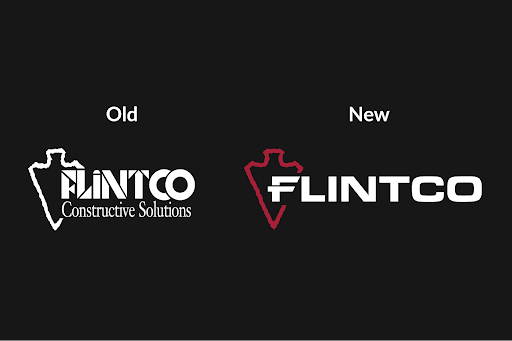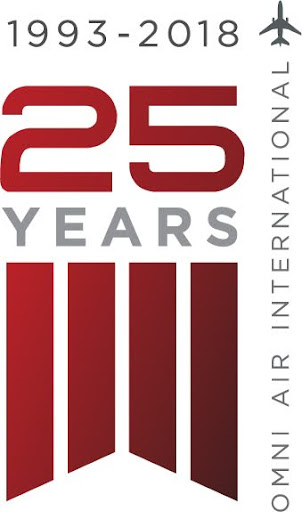The benefits of rebranding: Why it might be time
When considering a rebrand, it’s important to consider the benefits of rebranding as well as the reasons for wanting to do so.
At its core, your brand is a relationship, and relationships are meant to last.
That’s why rebranding your business or product — and changing how people perceive and find you — must be a strategic decision.
No two brand relationships are alike, so there is no easy formula to follow. But you can determine if rebranding is right for the long-term growth of your business by exploring and understanding three concepts:
- What are the different types of definitions of rebranding?
- What are the most common circumstances that warrant or inspire rebranding?
- What are the first steps of a successful rebranding project?
What is a rebrand?
Rebranding is any shift in your brand look or messaging to more accurately match the authentic experience you deliver day in and day out for your audiences (including your team).
Because brand changes can be either bold or conservative, it helps to see rebranding as a spectrum.
A full rebrand may take your company or product from one name and offering to another. Whether it’s a total name change (from Lance Armstrong Foundation to Livestrong Foundation) or a name shift (from Restoration Hardware to RH), the new name cascades into a new logo, new colors, a new back-story behind the name — even legal fees.
It’s a huge commitment.
There are three ways to define a rebrand and each conveys a different level of change:
- Rebranding - involves a new logo, look and messaging.
- Brand refresh - involves updating instead of overhauling.
- Brand extension - creates a unified look and feel for a growing brand family or hierarchy.
Is now the right time to rebrand?
Branding elevates your noble cause. It’s your chance to tell your story with clarity and connect on an emotional level.
Rebranding for the right reason can help you build upon the brand equity you’ve already earned.
1. Rebrand to modernize
Existing long enough to require modernizing your brand is a great problem to have!
Even the Brawny paper towel man periodically gets a new hairstyle to match the times. (In 2017, he was temporarily replaced by a woman.)
The important thing is to preserve your hard-won brand equity with a strategic update.
Such was the case with our work for Flintco, a 112-year-old national leader in commercial construction.
Our analysis of their original logo with its arrowhead mark revealed the company’s deep connection to its Native American roots. But, the rustic woodblock lettering and chiseled look masked the brand’s commitment to the latest innovations and construction technologies.
Our new logo elevated the brand while a new slogan cemented Flintco’s rich heritage.

2. Rebrand to align
You live your brand experience every day, but have you unequivocally defined it? It starts with identifying your brand differentiators: the benefits that make you stand out.
Dig down deep so you’re not relying on the obvious or overused.
For example, we help clients find ways to avoid watered-down messaging like, “Our people make the difference.” Even in a crowded market, each brand has a specific value unique to them.
As an agency partner, it's our specialty to identify the differentiators of your brand experience and communicate them to the world in a creative, memorable and consistent way.
3. Rebrand to provide clarity
Another reason for rebranding is to provide clarity.
Overstock.com ran an expensive commercial with a national media buy to explain that they’re more than overstocks. It’s hard to bite the bullet and rebrand, but they could have invested that money in a smart rebranding strategy instead of a commercial that could soon be forgotten.
Perhaps your company is named after founders who are no longer present. Or perhaps your sales team must frequently explain, “We’re more than this one product.”
Rebranding can change perceptions and deepen relationships, but inaccuracies make the road harder.
4. Rebrand to emotionally connect
Donald Miller’s concept of “Building a StoryBrand” has gained traction for the brilliant move of making your customer the hero of your brand story instead of you.

The right brand story helps your people find you and feel a sense of belonging.
Grogg’s Green Barn is a Tulsa plant nursery with an all-organic promise. The new branding we designed for them invites organic gardeners into their green story as part of their tribe.
5. Rebrand to increase value
Certainly, companies must rebrand after a merger or acquisition, but there’s wisdom in doing it while vying for a sale or purchase, too.
For example, we’ve helped companies looking to sell sharpen their brand to increase their value. We’ve also helped bring value to groups looking to purchase or partner with other companies.
6. Rebrand to mitigate risk
If your brand is associated with something negative, you can disassociate with a brand refresh. Just like how Kentucky Fried Chicken morphed into KFC with little fanfare when fried food fell out of favor.
A brand in crisis may require even more drastic measures like the Washington Redskins’ name change to the Washington Commanders.
For such times, you need more than a strategic rebrand. When our clients need public relations in addition to branding, we partner with a dedicated PR firm and attack the problem head-on so you can control the narrative.
Where do I start?
You know why it might be in your best interest to rebrand your company, but how do you get started?
Wherever your rebranding strategy falls on the spectrum from redo to refresh, here are pearls of wisdom we’ve learned from working with smart and creative clients for 27 years.
1. Rebranding your business doesn’t always mean changing your logo
While rebranding Omni Air International, we proposed a logo refresh to modernize its 25-year-old logo.
However, the legacy logo not only wrapped the airline’s widebody aircraft, it was seemingly everywhere — from embroidered on seatbacks to etched into first-class stemware.
In the end, switching out so many materials was cost-prohibitive and the rest of Omni’s new branding made up the difference. We listened to our client’s needs and we pivoted. We designed a 25th-anniversary logo that the company proudly turned into a challenge coin.
Omni Air International was successfully sold to Air Transport Services Group within a year.

2. If you go for a new logo, you’ll probably want a mark
Logos can be type treatments or words alone, but these days you’ll probably want a mark that has versatility.
When it comes to a new logo, create options — but not too many.
Your logo is the very foundation of your brand, so make sure your agency or designer provides options, but no more than five or so to avoid analysis paralysis.
We assign multiple designers to our logo projects and can produce an immense amount of options for internal review. Weeding out the field to only present our absolute best work is a sign of respect for our clients.
3. New names come with extra costs, including a potential hit to your SEO progress
When you rename your brand, the resulting costs to update your logo, identity package, graphic standards, website, social media profiles and signage can domino.
Finding a defendable name may require attorney fees for a trademark search. You may also have to pay thousands to secure a suitable URL.
Moreover, any search engine optimization (SEO) progress you built with a previous name and URL could face a setback without spending time and money to mitigate the risk.
4. Brand colors protect your borders
Among leading brands, especially B2C brands, colors are becoming more territorial.

Think AT&T blue vs. Verizon red. A brand-color mapping exercise performed during a competitive analysis can help identify where you can stand out.
Own your main brand color with pride, but make sure your agency provides a secondary color palette to keep your website from looking monochromatic.
5. Don’t forget the brand messaging strategy
After a successful rebrand, your agency or team will develop a brand style guide to keep your logo and color usage on track.
We believe it’s important to create the same type of reference asset for your brand messaging. A solid Brand Messaging Strategy elevates and defines your brand experience to help your entire marketing team effortlessly stay on message.
It should also include a competitive analysis to look for messaging gaps within your space and a wardrobe of sample headlines you can use throughout your creative materials or social media.
Packaged as a digital asset, your team can reference again and again.
6. Do you hate your website? Rebranding might be a good idea.
Most of our clients who come to us for a new website are actually feeling the discontent of something bigger and end up also asking for a rebrand or brand refresh.
When you feel friction or loss of confidence in sending people to your website, it’s usually a sign that the branding and messaging are off, outdated or incomplete.
A new website is an ideal anchor project to start your brand refresh. Plus, many deliverables can be created simultaneously while your website is in the development phase.
7. You may only need a new campaign instead of a new brand
In Madison Avenue’s glory days, slogans lasted years if not decades, and those famous slogans we all remember were written 20+ years ago.
Our attention span is shorter now.
Social and digital media have increased the frequency and diminished the longevity of campaigns.
Meanwhile, it takes many months to a year to identify and trademark a new slogan. You might get the marketing lift you need from a well-run digital campaign while taking the time to plan the rebranding of your business.
8. Build a branded house rather than a house of brands
If your company offers multiple products or services, focus your marketing dollars on promoting your overarching umbrella brand, rather than individually branding each product in your line-up.
The benefit of rebranding this way will lead to gained cost-savings and tremendous synergy as your name recognition grows.
When we first began working with endodontics and dental giant Dentsply Sirona, we launched its endodontic products under individual brand names, each requiring their own logo, trademark and package design.
Twenty years later with scores of products in its offering, the branding emphasis highlights the parent brand — where it will have the most impact.
9. Don’t get tired of your own brand and creative.
Avoid the itch to switch things up for creativity’s sake. Staying on message builds trust.
Consistency is the compounding interest of marketing. This means that by the time you get tired of seeing the same message from your brand, your audience is just starting to grasp it and associate that message with your company.
Don’t switch things up just because. Make sure you stay on message long enough to not confuse your audience.
Like all relationships, brands are made to grow.
Your brand is a relationship built on trust and consistency, but there’s always room to keep things fresh. Knowing when you need to rebrand your company or product is the first step in helping your brand grow with the times — and your goals — for years to come.
The benefits of rebranding are plenty, and if you've determined that the time is right, a simple next step you can take is reaching out to an experienced advertising agency like ours.
We'll walk you through our discovery process and help identify a rebranding strategy to fire up your brand.
Reach out here to start the conversation.
Station8 is a marketing agency located in Tulsa, Okla. They have a history of working with clients that have incredible noble causes™.
Station8’s award-winning services include messaging, advertising, digital marketing and SEO strategies.
Published: March 12, 2021